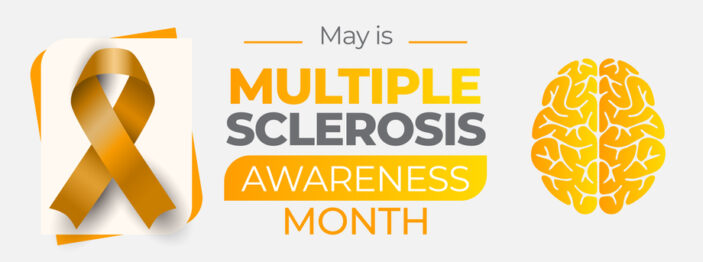MS Awareness Month: many with MS remain untreated
May is MS Awareness Month – a time to speak out about living with the disease, become involved in the community and show support for MS research. Perhaps the most important change over the past few decades has been the development of disease-modifying therapy (DMT) to treat MS.
However, a recent Canadian study reported that most people with multiple sclerosis are untreated (Balcom and colleagues. J Neurol Sci 2024:458:122913).
The study looked at health records for the period 2009-2019 in Alberta. Overall, the proportion of people taking at least one dose of medication annually increased from 24% in 2009 to 31% in 2019. DMT use was highest in the first year after diagnosis (29% in 2009, 45% in 2019). Ten years after diagnosis, few people were still taking a DMT (17% in 2009, 25% in 2019).
The most commonly-used DMTs were Copaxone (about 10%), Tecfidera (about 7%), Gilenya (5%) and Aubagio (about 3%). There was low use of all higher-efficacy DMTs, including Tysabri (1.5%), Ocrevus (2%), Mavenclad (1.5%) and Lemtrada (1.5%). It should be noted that Ocrevus and Mavenclad only became available in the latter stages of the study. Kesimpta was approved in Canada in 2021.
A study of British Columbia health records reported similar findings (Khakban and colleagues. Neurology 2023;100:e899-e910). In the period 2001-2020, only 1 in 3 people were taking a DMT for their MS. The use of MS medications is reportedly higher in other countries such as the U.S. (62%) and Germany (54%) (Kwon and colleagues. Ann Clin Transl Neurol 2024;11:1526-1534. Stratil and colleagues. Front Neurol 2025:16:1561810).
Physician/nurse/People with MS surveys
There are many reasons why a person with MS does not receive treatment. Some people are not ideal candidates for an MS medication. The risks of treatment may outweigh the benefits in older individuals. Treatment may not be indicated in those with progressive disease or severe disability. Unfortunately, the experience of people with MS taking a medication has not been adequately researched and few studies include people with MS who are untreated. Population studies often use medication databases (which exclude people not taking medications). MS patient databases often enroll people through MS clinics, and untreated people may not receive their care from an MS clinic.
At MSology, we think it’s important to listen to the full spectrum of people living with MS –those who have opted not to take a medication as well as those who are taking a DMT. So we have launched two surveys during MS Awareness Month: one for people with MS and one for the physicians and nurses involved in MS care.
We will summarize the results and report back to you in a series of articles on MSology.
Subscribe to MSology (it’s free) and we’ll inform you when the articles are posted.
Share this article
Facebook Twitter pin it! Email
Related Posts
Back





